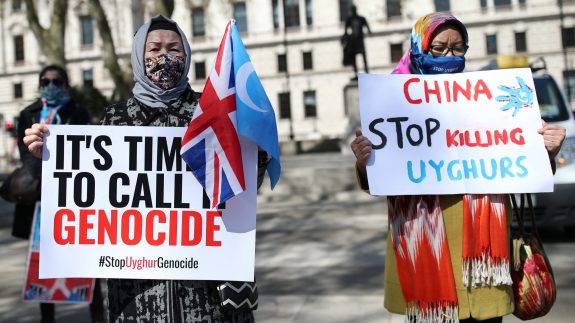
By Bahtiyar Bora
The Uyghur people of north-west China are now the most persecuted group on the planet with one million people locked up in “re-education” camps and numerous atrocities occurring daily.
The U.S. government, the parliaments of the U.K., Canada and The Netherlands now all say it is clearly genocide.
The brutal regime of Xi Jinping is trying to eradicate Uyghurs and other Turkic Muslims.
And while there’s been an avalanche of bad publicity in recent years for the Chinese government it continues to deny its actions and presses on with inhumane policies.
In recent weeks New Zealand stood up against the regime with a unanimous parliamentary vote condemning what it called “severe human rights abuses.”
The resolution was put forward by ACT Party MP Brooke van Velden:
“Our conscience requires that we support this motion,” she said.
“Genocide does not require a war, it does not need to be sudden, it can be slow and deliberate and that is what is happening here.”
But worldwide criticism alone will not save my brothers and sisters in East Turkistan (Xinjiang).
One measure that could put serious pressure on Beijing is the so called “Magnitsky Act”. This legislation is designed to punish individual members of a government who are inflicting human rights abuses.
The law, which is being implemented in several countries, is named after a Russian citizen, Sergei Magnitsky, who was a tax advisor who exposed Kremlin corruption back in the early 2000’s.
For his whistleblowing he was jailed for 358 days. While in prison he developed pancreatitis and a blocked gall bladder, and was denied medical care. An investigation found that he had been physically assaulted shortly before his death.
Now his former colleague Bill Browder has travelled the globe promoting the Magnitsky Act which can be used to freeze the assets of human rights abusers and deny visas for international travel.
A form of the Magnitsky act is now before the Australian Parliament and has the backing of a multi-party committee.
But so far the Prime Minister Scott Morrison has not supported the legislation.
So now four Australian based Uyghur organisation have written to the PM urging him to support the bill and get it passed by the parliament.
In part our letter to Scott Morrison says:
Uyghurs in East Turkistan, Xinjiang China are suffering horrific human rights abuses, which a number of countries have determined to be genocide.
It is not just Uyghurs who are being abused. Tibetans, Hong Kongers, and others are being subjected to outrageous crimes against humanity and democracy by the CCP.
The legislation you are considering provides hope for thousands who have escaped persecution to call Australia home.
If Australia is serious about stopping the blatant abuse of Uyghur Muslims it must take stronger action against the Chinese government.
Passing Magnitsky legislation is one important way it could do that.
Almost very Australian Uyghur has family and friends still in Xinjiang, and it has been extremely distressing not to have communication, or finding out they have been sentenced to imprisonment or taken to work in labour camps.
Some would say making the Magnitsky Act part of Australian law is the least we can do.
We often boast of how important our democratic ideals are. Now is the time to truly live up to those ideals.
Bahtiyar Bora, Australian Uyghur Association
https://theaimn.com/can-legislation-named-after-a-russian-help-persecuted-muslims-in-china/

